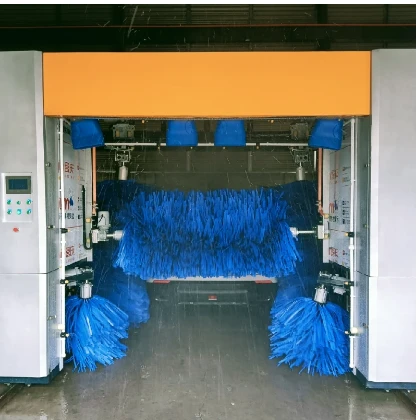
- Afrikaans
- Albanian
- Amharic
- Arabic
- Armenian
- Azerbaijani
- Basque
- Belarusian
- Bengali
- Bosnian
- Bulgarian
- Catalan
- Cebuano
- Corsican
- Croatian
- Czech
- Danish
- Dutch
- English
- Esperanto
- Estonian
- Finnish
- French
- Frisian
- Galician
- Georgian
- German
- Greek
- Gujarati
- Haitian Creole
- hausa
- hawaiian
- Hebrew
- Hindi
- Miao
- Hungarian
- Icelandic
- igbo
- Indonesian
- irish
- Italian
- Japanese
- Javanese
- Kannada
- kazakh
- Khmer
- Rwandese
- Korean
- Kurdish
- Kyrgyz
- Lao
- Latin
- Latvian
- Lithuanian
- Luxembourgish
- Macedonian
- Malgashi
- Malay
- Malayalam
- Maltese
- Maori
- Marathi
- Mongolian
- Myanmar
- Nepali
- Norwegian
- Norwegian
- Occitan
- Pashto
- Persian
- Polish
- Portuguese
- Punjabi
- Romanian
- Russian
- Samoan
- Scottish Gaelic
- Serbian
- Sesotho
- Shona
- Sindhi
- Sinhala
- Slovak
- Slovenian
- Somali
- Spanish
- Sundanese
- Swahili
- Swedish
- Tagalog
- Tajik
- Tamil
- Tatar
- Telugu
- Thai
- Turkish
- Turkmen
- Ukrainian
- Urdu
- Uighur
- Uzbek
- Vietnamese
- Welsh
- Bantu
- Yiddish
- Yoruba
Feb . 05, 2025 06:16
Back to list
DY-QC-9 Tunnel car washing machine
The decision to invest in an automatic car wash system is critical, often driven by potential profitability, operational efficiency, and customer satisfaction. Understanding the costs involved can be complex, but gaining insight into these expenses ensures that business owners make informed choices that contribute to their bottom line.
Licensing and Compliance Costs Operating an automatic car wash requires various permits and compliance with environmental regulations, especially concerning water use and disposal. These permits can incur initial fees, and ongoing compliance might demand modifications or updates to equipment and processes. Partnering with experts in environmental law or compliance consultants can help navigate these requirements successfully and avoid costly penalties. Marketing and Customer Acquisition To maximize the benefits of an automatic car wash system, effective marketing is imperative. Initial and ongoing marketing expenses should be viewed as an investment, crucial for customer acquisition and retention. Depending on the scale of the operation, the budget might vary, but leveraging digital platforms, loyalty programs, and partnerships can increase visibility and revenue without overspending. Return on Investment Understanding the potential return on investment (ROI) is crucial. An automatic car wash can generate substantial revenue, potentially recovering the initial costs within a few years. Location plays a critical role in ROI, as high-traffic areas can attract more customers. Additionally, offering monthly subscription models or loyalty programs can enhance cash flow and customer loyalty, leading to sustainable long-term profits. Future-Proofing the Investment As consumer preferences and technologies evolve, investing in a system that is adaptable to upgrades can prevent obsolescence. Choose a supplier with a solid track record for innovation and customer support. By aligning the car wash system with future trends, such as app-based customer interactions or water-saving technologies, owners secure their investment against industry shifts. In conclusion, while the cost of an automatic car wash system includes substantial upfront and ongoing expenses, strategic planning and investment can turn it into a lucrative venture. Focusing on quality equipment, regular maintenance, and savvy marketing will ensure not only cost management but profitability and customer satisfaction over the long term.


Licensing and Compliance Costs Operating an automatic car wash requires various permits and compliance with environmental regulations, especially concerning water use and disposal. These permits can incur initial fees, and ongoing compliance might demand modifications or updates to equipment and processes. Partnering with experts in environmental law or compliance consultants can help navigate these requirements successfully and avoid costly penalties. Marketing and Customer Acquisition To maximize the benefits of an automatic car wash system, effective marketing is imperative. Initial and ongoing marketing expenses should be viewed as an investment, crucial for customer acquisition and retention. Depending on the scale of the operation, the budget might vary, but leveraging digital platforms, loyalty programs, and partnerships can increase visibility and revenue without overspending. Return on Investment Understanding the potential return on investment (ROI) is crucial. An automatic car wash can generate substantial revenue, potentially recovering the initial costs within a few years. Location plays a critical role in ROI, as high-traffic areas can attract more customers. Additionally, offering monthly subscription models or loyalty programs can enhance cash flow and customer loyalty, leading to sustainable long-term profits. Future-Proofing the Investment As consumer preferences and technologies evolve, investing in a system that is adaptable to upgrades can prevent obsolescence. Choose a supplier with a solid track record for innovation and customer support. By aligning the car wash system with future trends, such as app-based customer interactions or water-saving technologies, owners secure their investment against industry shifts. In conclusion, while the cost of an automatic car wash system includes substantial upfront and ongoing expenses, strategic planning and investment can turn it into a lucrative venture. Focusing on quality equipment, regular maintenance, and savvy marketing will ensure not only cost management but profitability and customer satisfaction over the long term.
Latest news
-
Integrating Aqua Tunnel Car Wash in Shopping CentersNewsJun.24,2025
-
Gas Station with an Auto Car Wash MachineNewsJun.24,2025
-
Efficiency in Your Aqua Tunnel Car Wash: Power & Water-SavingNewsJun.24,2025
-
Car Wash Business with Advanced Auto Car Cleaning MachinesNewsJun.24,2025
-
Balancing Setup Costs with Aqua Tunnel Car WashNewsJun.24,2025
-
Aqua Tunnel Car Wash: Eco-Design for the Energy-Savvy EntrepreneurNewsJun.24,2025
Related PRODUCTS



